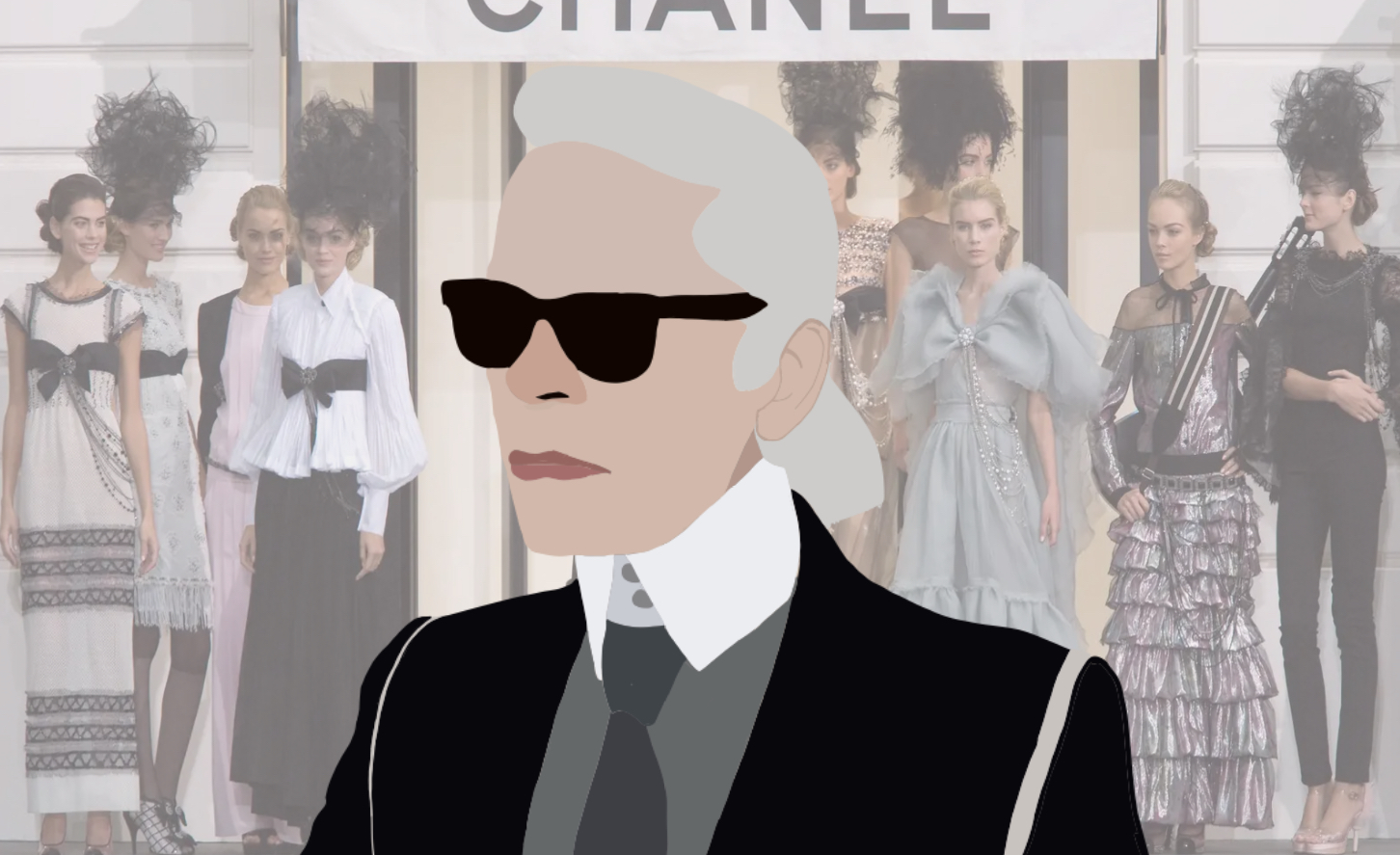Karl Lagerfeld, one of the world’s most influential fashion designers, died at the age of 85. His designs helped to create the house of Chanel as we know it, creating a much more commercial way of production. His views on luxury have forever influenced the modeling industry.
He took great pride in his standards of luxury. His standards were simple: skinny. Lagerfeld’s definitive views have, both directly and indirectly, been causing eating disorders in teenage girls for decades.
The majority of highschool girls have had some experience with eating disorders, sophomore Sage Duskin is not an exception.
“If you don’t fit a certain beauty standard you aren’t good enough. If you aren’t skinny enough, you’re not good enough,” Duskin said.
The model standard at the time was sizes 0-2, Lagerfeld was adamant that his models weren’t to be any larger. In an industry that already discriminates against bigger women, Lagerfeld actively defended the unspoken rule of only hiring needle-thin models.
“No one wants to see curvy women,” Lagerfeld said in an interview with Focus in 2009.
The hatred for bigger girls in the media didn’t just spread through modeling, it affected influencers too. Over COVID, many teens developed disorders such as anorexia and bulimia because they had nothing real to compare with. Due to the lack of interaction, besides social media, influencers were the basis of all expectations.
“It was during the time when everyone was supposed to look a certain way and act a certain way. I did not fit that standard, so I developed an eating disorder,” Duskin said.
Lagerfeld has also blamed fat people for societal issues, such as the hole in social security which affected America in the 2010’s.
“It’s also [due to] all the diseases caught by people who are too fat,” he said on French television channel La Grand 8 in 2013.
He believed that showing women who weren’t extremely thin to the general public would encourage being overweight. Of course, his standards labeled women of healthy weights as fat.
This has affected what teenage girls all over the world view as “fat”. His beliefs warped the general public’s understanding of sizes, labeling women as larger than they are.
“There are less than one percent of anorexic girls. But there are … over 30 percent of girls [who are] big, big, overweight. And that is much more dangerous and very bad for the health. So I think today, with the junk food in front of TV, it’s something dangerous for the health of the girl. The models are skinny, but they’re not that skinny. All the new girls are not that skinny,” Lagerfeld said when asked by UK Channel 4 in 2012 whether it was his responsibility to hire models who don’t appear to be unhealthily underweight.
Lagerfeld was never shy about lambasting potential celebrity clients. One of the most famous instances of this was referring to Lana Del Rey as “a little too fat” in the magazine Metro France in 2012.
In reference to Pippa Middleton, he said, “I don’t like the sister’s face. She should only show her back.”
Statements like these show young girls that not only do they have to be skinny like the models on the runway, it shames them for looking up to women for anything other than looks. These quotes make it so that the only people allowed to be famous have to be skinny.
“All of the famous people were skinny and we all wished we could look like that,” Duskin said.
Some of his disdain towards “fat” women could be relating to his own weight issues, having published The Karl Lagerfeld Diet in 2015 about his own 90Lb weight loss in the early 2000’s. However, this explanation doesn’t address his issues with other marginalized groups of people.
Lagerfeld, who was born in Hamburg and raised Germanic, told a French television show, “One cannot — even if there are decades between them — kill millions of Jews so you can bring millions of their worst enemies in their place.”
He then implied that allowing migrants of any kind would encourage antisemitism in Germany, placing the blame on those immigrating rather than those who upkeep such hate.
“I know someone in Germany who took a young Syrian and after four days said: ‘The greatest thing Germany invented was the Holocaust,’” he said.
Lagerfeld has also been very outwardly critical of the #METOO movement, a movement created to support victims of sexual assault. He believed that assault was something that came with the territory of modeling.
“If you don’t want your pants pulled about, don’t become a model! Join a nunnery, there’ll always be a place for you in the convent,” he said to France’s Numéro Magazine in 2018.
Lagerfeld’s blatantly offensive statements were, in a twisted way, just reiterating the beliefs that the modeling and fashion industries are based in. Unspoken truths of the hateful modeling and fashion industries — clothes made smaller to prevent bigger women wearing them, refusal to hire larger women — came directly out of Lagerfeld’s mouth.
Due to his uniquely untouchable status and strong feelings about model sizing, he was one of the few designers who openly shared such bold opinions. Despite this, the industry itself is practically built on these harmful philosophies.







